

The essential skills and knowledge product designers need to succeed | UX Planet
source link: https://uxplanet.org/skills-knowledge-product-designer-job-d06a0782bdd5
Go to the source link to view the article. You can view the picture content, updated content and better typesetting reading experience. If the link is broken, please click the button below to view the snapshot at that time.
Product designers need these skills and knowledge to succeed
Knowing only design isn’t enough
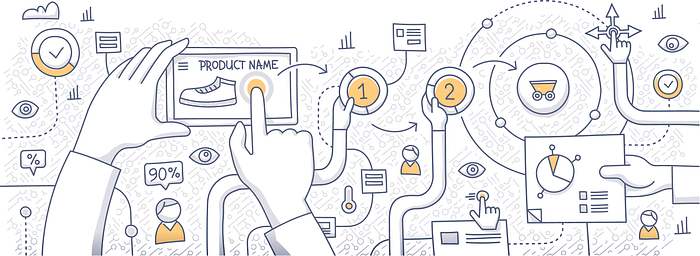
My experience as a product designer in multiple projects and companies taught me that there is much more to the role than doing the core process (user research, design flows, and screens).
The truth is that the role encompasses more aspects and skills than people may realize.
Throughout this article, I will share some skills and abilities a product designer needs to succeed. This isn’t about the user experience and the user interface design work itself but about everything that surrounds it and is essential.
The article is for people who want to enter the industry, junior product designers, and mid-senior designers who want to grow.
Let’s look at the different points.
Technology is important
The question “Does a product designer need to know code” always comes up in design communities. My opinion is YES, a product designer needs to know how code works.
You don’t need to write code, but you should know how the system works and how to talk to a developer.
Let’s say you made a design, but it doesn’t get implemented as planned.
In many cases, you’ll need to open the dev tools in the browser and play with the CSS to understand the problem. Once that’s done, you’ll have to tell the developers where the gaps are.
To explain the gaps to them professionally, you’ll have to explain it with the way they write code. If you try to do it without, you may notice that you do not speak the same language as they do.
In addition to knowing code, product designers need to understand how systems work.
Many product designers want to grow and work on complex products to improve their skills and feel challenged. A complex system requires you to understand how technology works to design great solutions.
Imagine you need to connect two tools. To make the connection work, you must understand how the systems work and their limitations. Moreover, to create an excellent user experience, you need to create a simple interaction design for these complex problems. To do this, you need to understand the technology.
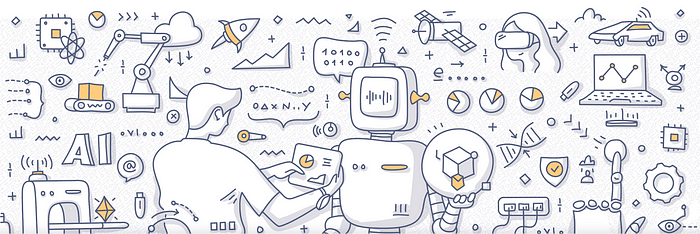
A designer needs a clear opinion and confidence
When I began work as a product designer, I lacked confidence, and often I said YES to what the product manager or developers suggested. As time went on, I gained more knowledge and confidence, and it helped me come up with solid ideas to convince people.
An example of a product designer who doesn’t have a clear opinion is someone who shows a design in a meeting. In this meeting, one participant shares another idea and says their way is better, and without asking any questions, the designer changes some flows and screens.
When a designer has a clear opinion, they will explain and justify why every detail is done a certain way and respond to any question the team members will have. Because of that, the team will have confidence that the designer knows what they do.
Don’t get me wrong. It always happens that the product designer needs to change the design after a meeting for various reasons, but the designer needs to understand the reasons and agree on it, not just change it because someone said so.
The ability to convince people is essential
A few articles ago, I mentioned that I took a sales course because I realized I needed to sell the idea to my teammate to convince him. Honestly, I wasn’t good at selling ideas in the past, but today I am a much better seller.
As a product designer, your responsibility should be to push your design and idea forward and be able to convince people about them. It is not only about finding solutions to problems. You can also suggest ideas you think the product should solve.
Negotiating skills are important
You can’t always win and convince people of your ideas, and that’s OK. But it would be best if you always negotiated for the points you think are important.
For example, the product manager asks you to design a big feature quickly, but you think it’s impossible to design it in a short time. You can negotiate about the scope and cut it to size you think you will be able to deliver, and the users will get value.
It’s your responsibility to explain how long and how much effort will be involved. If you say yes, you won’t be able to finish the design, which can be your problem.
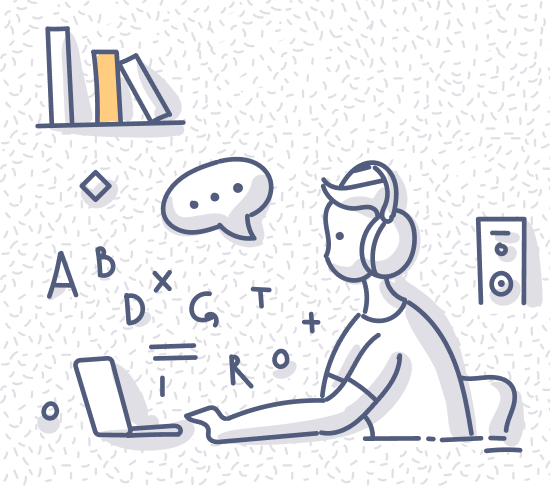
It’s up to you to ask all the questions
Whenever you make a new design, you need to ask and get answers to all the questions that can affect the design. The people will not explain everything, so you’ve got to ask all the questions.
You first need to ask about the users, who they are, what they want, and why they want it. Okay, but this is the first lesson in product design.
In addition, you need to ask questions about the domain, the technology, and the business.
For example, you can ask the developers how they will develop it. Is it React, React Native, or iOS? Let’s say they use React. Now you can ask what library they’ll use to make the components. If you know all this, you’ll better understand how the components behave without adding functionality.
Another example is when you work on a project in an unfamiliar domain, like a product for developers or the wood industry. You have to control the domain to make a digital product with a good UX design.
If that’s the case, you’ll need to ask many questions about the domain. You can talk to the product manager, product expert, and users or ask Google about the domain.
It’s your responsibility to ask all the questions. Don’t assume people will explain everything to you because it won’t happen.
To understand all the ways you can use to gain knowledge in an unfamiliar domain, you can look at the article I wrote on this subject.

Keep studying
Product designers never stop learning. This industry has a lot of innovation, so you must stay on top. Designers who don’t study new topics to improve their skills can fall behind the market.
You’ll be much more professional when you study and implement new techniques, tools, and methodologies. You’ll be able to grow and improve on all the hard skills aspects of your job.
In addition, by studying and improving your abilities, people around you will notice the difference, and you’ll be able to give them more confidence that you’re a pro.
Be aware that you can study topics related to product design, like product management, graphic design, development, and UX writing.
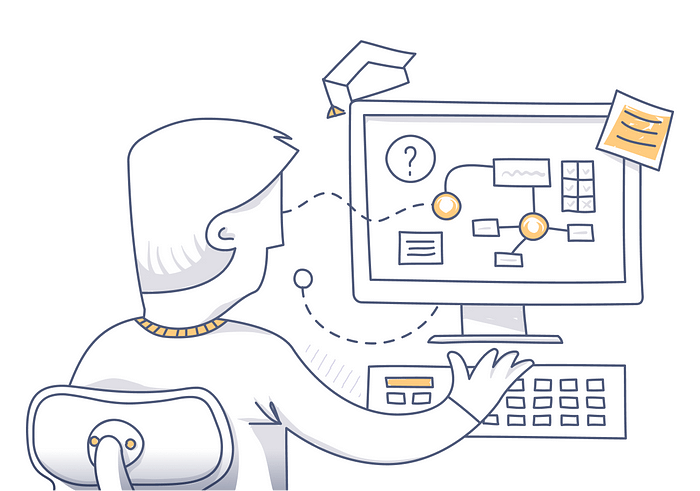
Plan and manage meetings
As a product designer, you’ll have to meet with stakeholders like developers, designers, product managers, CEOs, CTOs, etc. In most cases, it’s to show a concept, review a design you did or conduct a design thinking workshop.
Managing meetings can be challenging for people who aren’t used to doing it. You must first understand why you are asking the people for a meeting and what you will discuss with them; then, you must prepare the presentation and main topic.
Last but not least, controlling the meeting is the hardest part. In meetings, people talk about things that aren’t in the meeting’s scope or discuss the topic without getting to the point. When you handle the meeting, you must take it where you want it to go. If you don’t do it, people will take over the meeting, and you won’t be able to get the agreement you need to continue work.
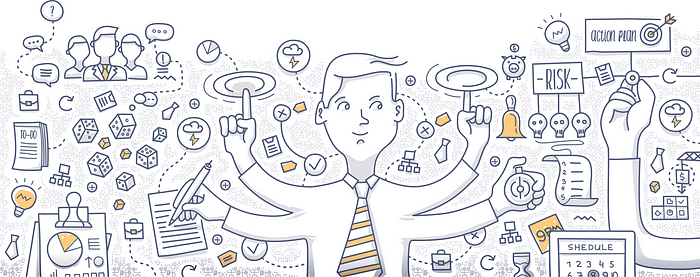
Thinking in systems
Today, a design system is a standard, and many companies use it. Apart from that, it would help if you designed something that supports the overall system, like a holistic view. In many cases, when you design a new feature, you can use some flows, icons, and special components that exist in the system. You can add them to your design to make it more coherent and save time and effort for you and the developers.
Great communication skills
You always have to explain your ideas and solutions to team members like developers, designers, project managers, and sometimes company managers.
Because of that, having good communication skills is key. Writing a clear Slack message or email, creating a clear presentation, writing clear documentation, and speaking clearly in meetings are all part of it.
Your product design process will improve with this skill since people will understand you more quickly, and you won’t have to repeat yourself as much.
To summary
In writing this article, I aimed to share some points about skills and knowledge that I believe are important for product designers to succeed in this field.
These aren’t just product designers’ standard UI design and UX design skills but other skills and knowledge we need in our work.
These include convincing people, being confident, asking all the questions, managing meetings, and good communication.
I believe that the points I share in this article will help you grow as a product designer.
Thank you for reading the article. I hope this article helped you learn the additional skills needed to be a successful product designer.
Please feel free to share it with your friends or team members, and if you have any questions, please let me know.
If you enjoyed my article, I suggest you follow me and subscribe so you’ll receive an email whenever I post.
Want to get the most out of Medium? Click here to become a member. As a member, you’ll support me and lots of other writers.
Recommend
About Joyk
Aggregate valuable and interesting links.
Joyk means Joy of geeK